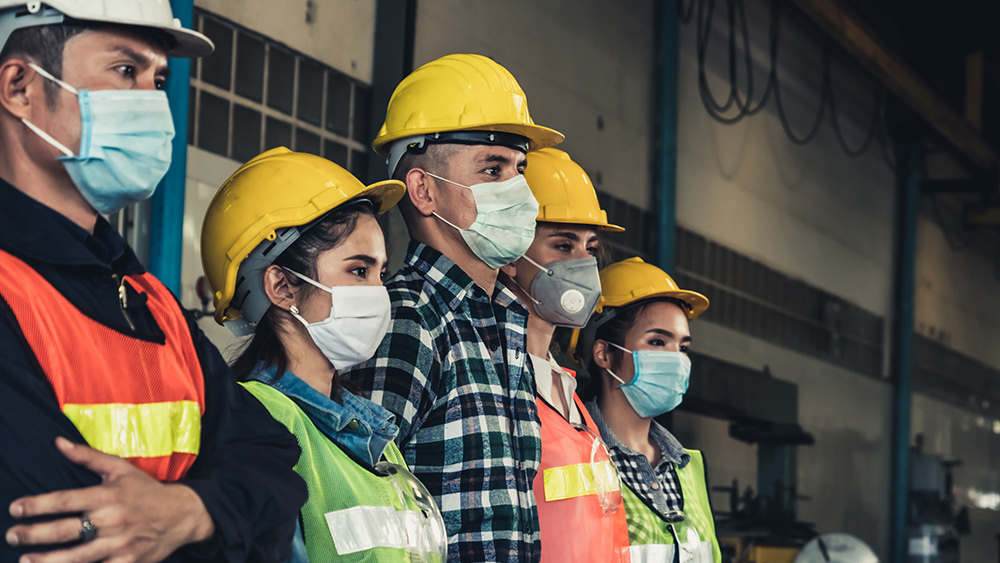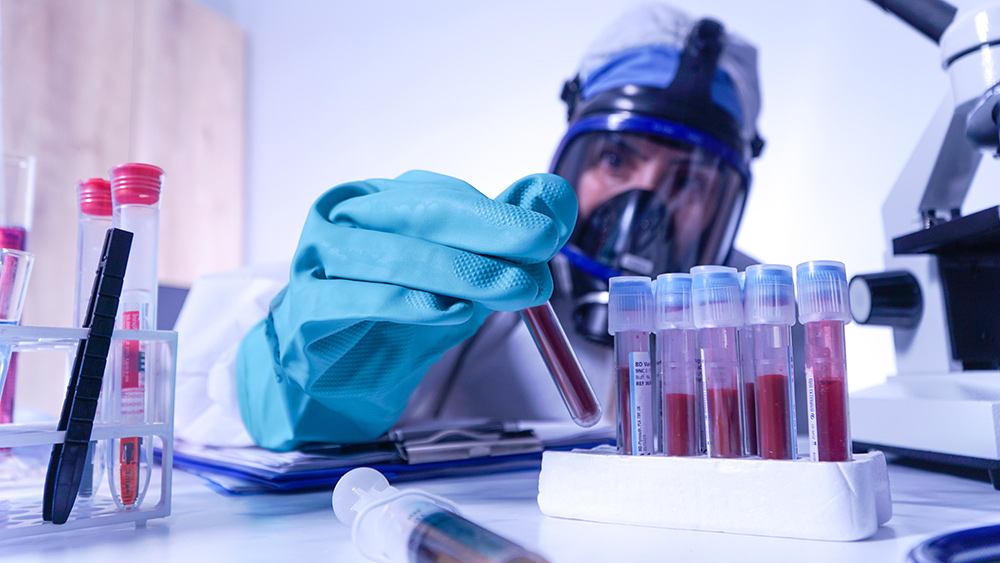Scientists: Face masks reduce risk of coronavirus infections by 65 percent
07/09/2020 / By Franz Walker

There has been some debate regarding how much face masks help prevent infection with the Wuhan coronavirus (COVID-19). Now, new studies show just how effective face masks really are at keeping wearers safe from the disease.
According to experts at the UC Davis Children’s Hospital, recent findings show that covering the nose and mouth decreases the risk of COVID-19 infections by 65 percent.
“Everyone should wear a mask,” said Dr. Dean Blumberg, chief of pediatric infectious diseases at UC Davis Children’s Hospital, during a live stream on Wednesday.
“People who say, ‘I don’t believe masks work,’ are ignoring scientific evidence. It’s not a belief system. It’s like saying, ‘I don’t believe in gravity.’”
Talking releases virus-laden aerosol particles, face masks stop those
Previously, it was thought that wearing face masks only served to reduce viral transmission. But numerous studies have now shown that not only do face masks prevent infected individuals from spreading the coronavirus, but they also protect healthy people from COVID-19. (Related: Wearing masks to block the coronavirus is going to become the new normal.)
There are two main methods by which the virus spreads. The first one is via droplets that are expelled when an infected person coughs or sneezes. According to researchers, while these droplets are only about a third of the size of a human hair, they’re still visible to the human eye.
The second and more dangerous method of transmission is via aerosol particles that infected persons spray into the air while they speak. These are much smaller than droplets and are nearly impossible to see with the naked eye. What makes this method dangerous is how long the virus is able to remain alive in aerosol form.
“Studies in laboratory conditions now show the virus stays alive in aerosol form with a half-life on the scale of hours. It persists in the air,” said Dr. William Ristenpart, a professor of chemical engineering at the University of California, Davis.
A study published in the New England Journal of Medicine, however, showed that even just a damp washcloth covering the mouth can block droplets between 20 to 500 micrometers in size.
The researchers used a special laser equipment to track aerosol particles expelled by a person when talking. They found that the act of speaking generates fluid droplets that vary widely in size, and these droplets can harbor infectious virus particles. But when a damp washcloth was used to cover the speaker’s mouth, the researchers noted that the amount of droplets expelled in the air was significantly reduced to almost undetectable levels.
Face masks are still more effective than face shields and plexiglass covers
While face masks were shown to greatly reduce a person’s risk of infection, other protective equipment, such as face shields, plexiglass covers and cubicles, are less effective at doing so.
The main reason for this is airflow. As these equipment don’t really block air, coronavirus-laden aerosol particles can still be blown past them.
“The way to think about that is to think about smells,” explained Ristenpart. “If the person on the other side of a cubicle or plexiglass is wearing perfume, eventually, you’ll smell it. The aerosol particles are small enough to travel on air much like aromas. That’s why airflow is so important, along with other actions like wearing masks and social distancing.”
With this in mind, researchers say that following mask mandates, alongside social distancing, will help get the ongoing pandemic under control.
“We do know social distancing reduces the risk of transmitting the virus by 90 percent, and wearing masks decreases the risk by 65 percent,” said Blumberg.
“Wearing a mask affects everyone,” he added. “If you care about your family or friends, or if you care about your community, wear a mask.”
Learn more about how to keep safe from COVID-19 at Pandemic.news.
Sources include:
Tagged Under: aerosol particles, coronavirus, covid-19, face mask, face shields, Flu, fluid droplets, infections, infectious disease, outbreak, pandemic, prevention, protective equipment, Public Health, research, superbugs, viral infection, viral particles, viral spread, viral transmission, virus



















